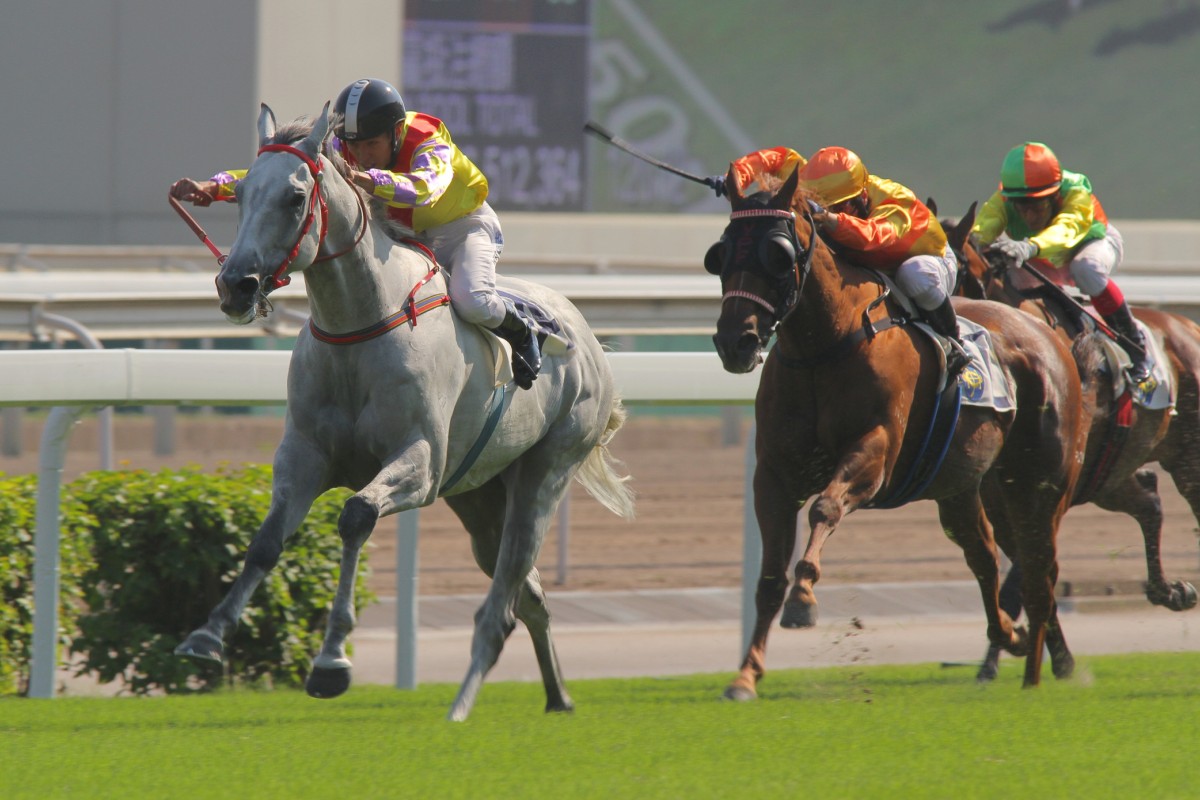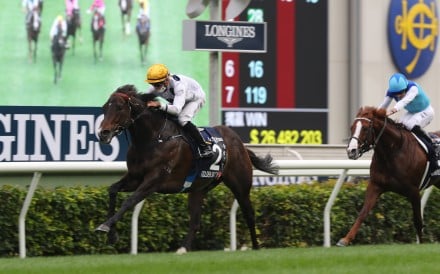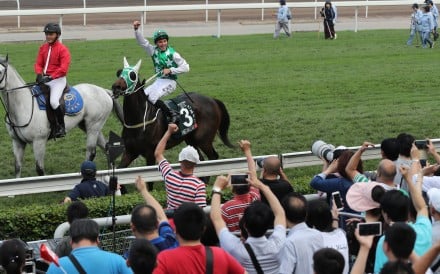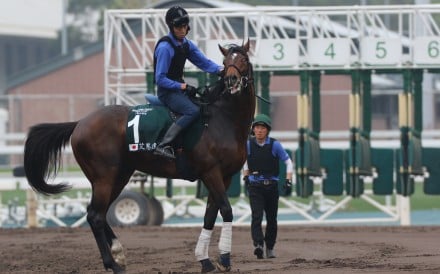One-hundred-to-one shots are reported in a cheerful enough manner and give hope to the ten-dollar each-way brigade, but in reality longshot winners cast a hollow and silent pall across Hong Kong racecourses – except to the very few who back them, of course.
By definition, 100-1 winners aren’t very popular. Also of no coincidence is the fact upset wins usually coincide with a form reversal, and they leave clueless trainers with the unenviable task of trying to explain the unexplainable to stewards.
Manfred Man Ka-leung’s new acquisition, Dashing Fortune, fell just short of 100-1 status, paying HK$996.50 for a HK$10 outlay, smashing Triple Trio players out of commission and ensuring a raft of massive payouts for exotic bets.
Man was a nervous-looking man when he entered the stewards' room to explain how a horse who had finished 11th last start and showed nothing was able to lead his rivals a merry dance when stepping up to 1,400 metres.
You have to give Man credit for honesty. He went in and told the stipes the same thing he told the SCMP later – basically he had no idea how the horse had won.
“To be honest I didn’t know a lot about him, but even his owners told me he was just a Class Five horse,” Man said. “His rating was 41and he needed to go down another point before he got to Class Five, and I just had to put him in a race.”
 Last season there were three winners beyond 100-1; two absolute whoppers in Super Lifeline (173-1) and Alpha Grand (156-1), while It Has To be You burnt punters at 125-1 in the Classic Cup.
Last season there were three winners beyond 100-1; two absolute whoppers in Super Lifeline (173-1) and Alpha Grand (156-1), while It Has To be You burnt punters at 125-1 in the Classic Cup.
While these performances would seem to indicate a great training or riding performance – the seeming ability to get a horse to “overachieve” – it’s more to do with straight luck and they carry a stigma for their handlers, especially in the gambling-centric world in Hong Kong.
Back in the good old days – or bad old days depending on who you ask – of the 1970s and 1980s, a long-priced winner without prior notice to connections often precipitated a stable transfer. It was the ultimate insult to have your horse win and not be told to bet up.
Even in more recent times there have been notable occasions of less-than-joyous-looking presentation shots as owners stand disconsolately beside their victorious steed.
Not only have the owners not been given the green light to gamble – which is all part of the game – but they haven’t invited friends and business colleagues to the party, the same people they need to face up to, when asked, “Why didn’t you tell me your horse was going to win?”
One current trainer who came through the golden era of “tips for the boys” was so ashamed to win with a rank outsider he could barely bring himself to speak to the press, and basically ended up issuing a public apology.
After a longshot arrives at a Sha Tin meeting you are more likely to see tumbleweed roll through the public section than witness a punter celebrating. In other parts of the world roughies seem to be better received, even if it is just one person doing the cheering.
This epic reaction from the owner of a 100-1 Group One winner – Anne McGrath – after Tears I Cry scored in the 2007 Emirates Stakes at Flemington is the perfect depiction of that old adage “everyone is equal on a racecourse”.
Even if Hong Kong racing is cleaner and less open to a fix than three decades ago, no one likes being left out of a juicy payout.
And maybe now that Manfred knows a little more about Dashing Fortune he can tip with confidence next time the grey is ready to win.



















